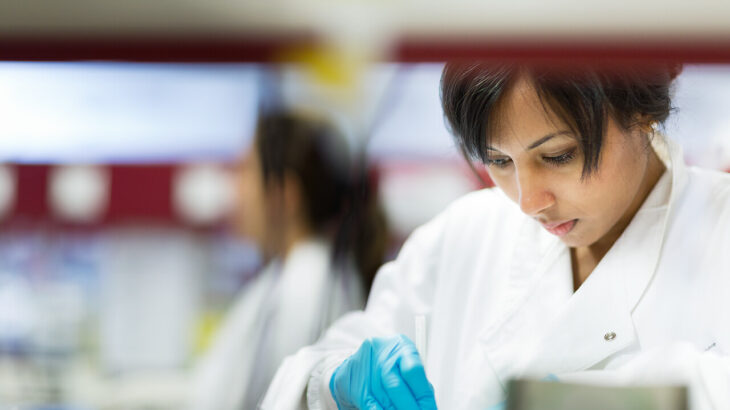SES members to play a leading role in training future scientists and engineers

Some 4,000 students will benefit from a £1bn investment in doctoral training centres for engineering and physical sciences, with SES members lead partners in almost a third of them.
In the UK’s biggest-ever investment in engineering and physical sciences doctoral skills, the 65 Centres for Doctoral Training (CDTs) will support research in areas of national importance including sensor technologies, data driven healthcare and quantum technology engineering.
All SES members were awarded one or more of the CDTs in which they are partnership leads, totalling 21 altogether across the consortium.
These include a centre led by King’s College London, which will train researchers in advanced engineering for personalised surgery, such as micro-surgical robots, AI-assisted surgery, digital surgical twins creating virtual replicas of patients’ anatomy to inform surgeons about how to tailor procedures, and chemical techniques which allow for surgery ‘without the knife’.
Meanwhile, a team of bioengineers at Queen Mary University of London has been awarded £7m to establish an EPSRC Centre for Doctoral Training in Next Generation Organ-on-a-Chip Technologies. this technology is poised to revolutionise pre-clinical drug testing, speeding up the delivery of safer, more effective medicines and reducing the use of animal testing.
More than 1,400 companies, higher education institutions, charities and civic organisations are taking part in the centres for doctoral training.
CDTs have a significant reputation in training future UK academics, industrialists and innovators who have gone on to develop the latest technologies.
Total investment in the CDTs includes £479m by EPSRC, this funding includes £16m of additional UKRI funding to support CDTs in quantum technologies.
The announcement was welcomed by members of SES’s executive board.
Professor Bashir Al-Hashimi, King’s College London Vice President (Research & Innovation), said: “We are working in partnership with industry to deliver innovative digital healthcare solutions, and this new EPSRC funding will enable us to continue to drive economic growth and produce highly skilled postgraduates to join industry.”
Professor Geraint Rees, UCL Vice-Provost (Research, Innovation and Global Engagement), said: “UCL’s Centres for Doctoral Training are a core part of creating the research leaders of tomorrow, and supporting them to develop the skills they need to address the scientific and engineering challenges they face. This investment, and UCL’s continued partnership with EPSRC, will help us to deliver world-leading research and innovation.”
You can read more about this announcement on our members’ websites:


